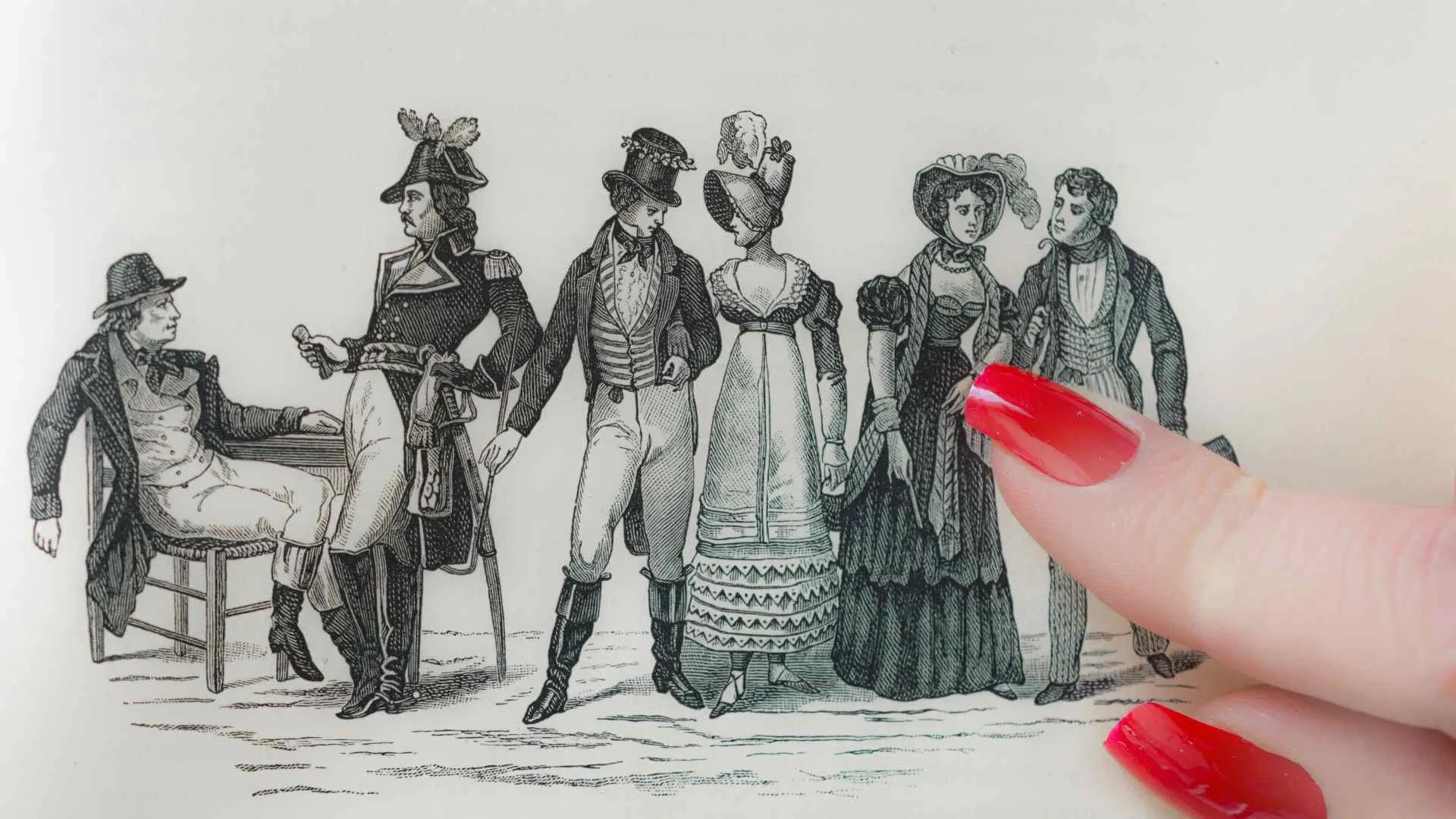While many might know “Ellie” as a popular or trendy name, its layers go beyond the surface, with roots deep in history and branches that touch various aspects of culture, including the life and journey of… me!
Whether you’re an Ellie, know an Ellie, or are just curious about names and their stories, there’s something here for you. Let’s embark on this journey together.

Historical Meaning of Ellie
The name Ellie is often cherished for its sweet, melodic sound, but its roots run deeper than just its pleasant tone. In fact, the history and evolution of this name are both varied and fascinating.
Origin and Etymology
Ellie is traditionally considered a diminutive or shortened form of names like Eleanor, Ellen, and Elizabeth. The name’s roots span multiple cultures and languages.
- Eleanor: This name’s origins are debated, but it’s believed to be of Old French origin, derived from the Provencal name “Alienor.” Eleanor became popular in England after the reign of Eleanor of Aquitaine, the queen consort to both Louis VII of France and Henry II of England.
- Ellen: This name is of Greek origin, derived from the word “helene” which means “torch” or “shining light.”
- Elizabeth: Of Hebrew origin, the name means “God is my oath.” It’s one of the most enduring and universally recognized names worldwide.
Ellie, as a standalone name, has gained popularity in recent years. Its simplicity and charm have made it a favorite among modern parents.

Popularity Trends Over Time
In historical terms, the use of Ellie as a standalone name is a relatively recent trend. While Eleanor, Ellen, and Elizabeth have ancient roots and have been popular for centuries, Ellie began its rise in the late 20th century, particularly in English-speaking countries.
The name’s popularity surged in the 1990s and 2000s, and it has continued to rank among the top names in countries like the United States, the United Kingdom, and Australia.
Today, Ellie stands strong not just as a diminutive but also as a complete, standalone first name. Its surge in popularity reflects the modern trend of using nicknames or shorter forms of traditional names.
Ellie, with its rich tapestry of history and culture, is more than just a name. It encapsulates tales of queens and commoners, ancient traditions, and modern trends. Whether you’re an Eleanor, an Ellen, an Elizabeth, or just an Ellie, there’s a story embedded in these five letters waiting to be told.

Cultural Significance of Ellie
Names are not merely arbitrary designations but cultural markers, telling tales of societies, traditions, and epochs. “Ellie” is no exception. While it has historical roots in names like Eleanor and Elizabeth, its presence and significance across cultures give it a multi-dimensional appeal.
Ellie Across the World
- In the West: In English-speaking countries, Ellie, often a sweetened version of names like Eleanor and Ellen, has emerged as a standalone name. Its simplicity and charm resonate with the modern love for brevity, leading to its popularity in the U.S., U.K., Canada, and Australia.
- In Europe: Ellie is also popular in non-English speaking European countries. Its pronunciation might differ slightly, but its essence remains. It often retains its position as a diminutive in places like France and Spain, but it’s equally appreciated.

The Universal Appeal
Names like Eleanor, from which Ellie derives, have been borne by queens, saints, and notable historical figures. Eleanor of Aquitaine, Eleanor Roosevelt, and Saint Eleanor are just a few who have given the name its regal, virtuous, and influential touch.
But Ellie has a charm of its own. Its widespread adoption in popular culture — movies, songs, and literature — has made it a household name. The character “Ellie” has been portrayed as the girl-next-door, the rebel, the thinker, and the dreamer, showcasing the name’s versatility and broad cultural acceptance.
Ellie in the Arts and Media
- Music: Ellie Goulding, the English singer and songwriter, has added a contemporary twist to the name. Her chart-topping tracks and distinctive voice have made “Ellie” synonymous with pop-cultural significance in recent times.
- Television and Movies: From animated movies to drama series, characters named Ellie have painted diverse narratives. Ellie’s character in the movie “Up,” for instance, embodies love, adventure, and hope, while other Ellies on screen have depicted stories of courage, tenacity, and transformation.
In its journey across time and culture, “Ellie” has been molded, reshaped, and cherished in various hues. From royalty and sanctity to the arts and popular culture, its cultural footprint is expansive.
The name Ellie isn’t just about its sound or its origin, but it’s about the stories, feelings, and images it invokes in people’s minds across the globe.

Public Figures Named Ellie
Names often resonate with us because of the personalities that bear them. When it comes to the name “Ellie,” various public figures have contributed to its fame, impact, and overall sentiment. Here’s a spotlight on some notable figures who wear this name proudly:
- Ellie Goulding:
- Profile: An English singer, songwriter, and record producer.
- Significance: Known for her ethereal voice and hits like “Lights,” “Love Me Like You Do,” and “Burn.” Goulding has won numerous awards throughout her career and is known for her unique blend of electronic music with indie pop.
- Ellie Kemper:
- Profile: An American actress, comedian, and writer.
- Significance: Ellie rose to prominence for her role as Erin Hannon in the NBC series “The Office.” Later, she played the titular role in the Netflix series “Unbreakable Kimmy Schmidt,” earning critical acclaim.
- Ellie Drennan:
- Profile: An Australian singer.
- Significance: Known as the youngest winner of “The Voice Australia” in 2015, Ellie’s voice captured the hearts of many Australians.
- Ellie Soutter:
- Profile: A talented British snowboarder.
- Significance: Soutter was a rising star in the sports world and represented her country in various international competitions.
- Ellie Simmonds:
- Profile: A British Paralympian swimmer.
- Significance: A multi-time Paralympic champion, Ellie has broken various world records and has been an inspiration to many, advocating for athletes with disabilities.
- Ellie Bamber:
- Profile: An English actress.
- Significance: Ellie has been featured in various films and television shows, with notable roles in movies like “Nocturnal Animals” and series like “The Trial of Christine Keeler.”
While these figures have undeniably contributed to the popularity and resonance of the name “Ellie,” what stands out is the diversity of fields they represent—from music and acting to sports.
It’s not just about the name but about the hard work, talent, and uniqueness of each individual bearing it. They remind us that an “Ellie” can be anyone, from any walk of life, making a mark in her own unique way.

Ellie in Pop Culture
Pop culture has a powerful way of influencing our perceptions of names. The name “Ellie” has graced many a screen, script, and stage, further embedding its presence in our collective consciousness. Here’s a look at the imprint Ellie has left in the world of popular culture:
- Movies:
- “Up”: Arguably one of the most heartwarming depictions of an Ellie in film, Pixar’s “Up” introduced us to Ellie Fredricksen. Her adventurous spirit and heartening love story with Carl are central to the movie’s emotional depth.
- “The Last of Us”: A prominent video game, but its cultural impact is akin to film. Ellie is a central character, showcasing resilience, strength, and vulnerability in a post-apocalyptic world.
- Television:
- “Ellie”: A short-lived sitcom from the early 2000s had Ellie Riggs as its central character, played by Julia Louis-Dreyfus.
- “Degrassi: The Next Generation”: Ellie Nash was a main character, known for her gothic appearance and battling personal demons. Her character dealt with significant issues like self-harm, offering viewers a nuanced look at teen struggles.
- Music:
- Beyond Ellie Goulding, who has notably cemented the name in contemporary music, lyrics of various songs across genres have featured “Ellie” as a muse or a mention, further popularizing the name.
- Literature:
- Ellie Chronicles: A series of novels by John Marsden, acting as a sequel to the famous “Tomorrow” series. Ellie Linton, the protagonist, navigates a world post-war, showcasing her resilience and growth.
- Various books, from children’s literature to romance novels, have had characters named Ellie, each contributing to the rich tapestry of narratives attached to the name.
- Brands & Mascots:
- The name Ellie has also been used for branding, be it children’s products, apps, or even mascots, thanks to its approachable and friendly sound.
What makes Ellie stand out in pop culture is its universal appeal. The name has been embraced in diverse narratives—from adventurous tales and emotional dramas to lighthearted comedies and intense thrillers. Ellie isn’t just a name; in pop culture, it’s an archetype of sorts, representing various facets of the human experience.

Ellie Ewert: A Personal Touch
Every name carries with it a world of stories, memories, and dreams. And while the cultural and historical significance of “Ellie” is vast and varied, sometimes the most meaningful interpretation comes from one’s personal journey.
Enter… well… me, Ellie Ewert! A name that brings with it a unique story of growth, exploration, and purpose.
A Journey of Self-Discovery
Ellie Ewert isn’t just a name on a blog. Behind those words is a tale of a D1 rifle athlete who navigated the highs and lows of competitive sports.
From the exhilarating moments of victory to the heart-wrenching experience of being cut from a cherished program, my athletic journey has been filled with lessons of resilience, perseverance, and self-worth.
Nerdy Beginnings and Bold Ambitions
Every superhero has an origin story, and mine started very early in school. Far from just being an athlete, I was also very into learning and accelerating in school—passionate, curious, and driven.
These traits didn’t disappear but evolved as I transitioned into the professional world, landing me at Epic, a realm where analytical prowess meets real-world impact.

Manifesting a New Chapter
Two years ago, I adopted the manifesting mindset, an empowering shift that transformed my life. At a personal crossroads, I decided to manifest my destiny actively.
Gone were the days of merely accepting life’s hand; it was time to reshuffle the deck in favor of MY dreams. Now, surrounded by incredible vibes and even better people, my life is a testament to the power of positive thinking, sending good vibes, and actionable change.
Building Dreams, One Blog at a Time
My penchant for writing is not a newfound passion. With two other thriving blogs—Ellie’s Travel Tips and Hey Dorothea—I have been weaving stories and sharing insights since 2020. These platforms are more than just online spaces; they’re reflections of my evolving journey, my dreams, and my commitment to making the world a little brighter.
Ellie Ewert is not just a name; it’s a narrative. It’s about my life where I am continuously learning, growing, and reshaping her destiny. While the name “Ellie” may be popular and cherished worldwide, Ellie Ewert’s story is uniquely mine—filled with ambition, heart, and a dash of dazzle.

The Power Beyond the Name
Names are powerful entities. They’re often the first introduction to an individual, a brand, or a concept. They encapsulate histories, hint at characteristics, and prompt associations. “Ellie” is no exception.
It carries with it nuances, memories, and implications. But while names are significant, there’s a profound power that exists beyond the mere syllables and sounds.
More than a Label
Names, at their most basic, are labels. They identify and differentiate. But a person is much more than their name. They are their experiences, dreams, passions, fears, mistakes, triumphs, and lessons learned.
The name “Ellie” might hint at certain cultural or familial histories, but my journey and experiences add layers of depth and meaning to the title.

Identity and Growth
While our names might remain constant, we, as individuals, evolve. We change our perspectives, learn new skills, embrace different passions, and let go of past burdens.
We might identify with our names, but our identities are fluid, influenced by our experiences and environments. The power lies in understanding that while our names might hint at a story, it’s we who pen its chapters.
Names and Expectations
There’s an interesting dynamic between names and societal expectations. Some might hear “Ellie” and think of the popular figures that share the name or the cultural implications it might have.
But forging one’s path means sometimes defying these expectations, reshaping them, or merging them with personal goals. It’s about taking the name’s power and amplifying it with personal intent.

Creating Your Legacy
It’s essential to remember that while our names might be given to us, our legacies are crafted by us. I, for instance, have taken my name and intertwined it with tales of travel, growth, resilience, and positivity. Every blog post, every shared experience, and every moment of vulnerability adds to the legacy associated with my name.
While the question “What does the name Ellie mean?” can be answered with definitions, histories, and popular associations, the real power of any name is what we make of it.
Names might provide a foundation, but it’s our actions, choices, and narratives that build the structure atop it. Every “Ellie” has a unique story, and every story has the potential to redefine what “Ellie” truly means.

Your Name Doesn’t Define You
Names are curious things. They’re often the first piece of information we share and the primary way people identify us. They can hold deep cultural, familial, or historical significance.
Yet, as integral as names seem to be in our lives, they only scratch the surface of who we truly are. Here’s a dive into the concept that, while names are influential, they don’t ultimately define us.
The Weight of Tradition
Names often come with historical baggage. They’re passed down through generations, bearing stories of ancestors, cultural narratives, or long-standing traditions.
However, while it’s essential to acknowledge and respect this history, it shouldn’t become a cage. Each individual has the opportunity to reinvent themselves, regardless of their name’s past.

External Perceptions
Society often has a way of attaching stereotypes or expectations to certain names. “Ellie,” for instance, might conjure images of famous Ellies or any popular cultural connotations.
But it’s crucial to remember that these are external perceptions, and while they might influence first impressions, they don’t encompass the entirety of a person’s character or potential.
Growing Beyond the Name
Names can become comfort zones. They’re familiar, a constant in a world of change. But growth often requires pushing beyond the familiar. One can embrace the name they’re given while simultaneously expanding beyond its confines, crafting a narrative that’s uniquely theirs.
The Essence of Individuality
At the heart of the matter is individuality. Every person is a mosaic of experiences, dreams, passions, and quirks. A name, no matter how rich in history or meaning, can’t capture the essence of a person’s soul or the breadth of their journey. It’s just a starting point—a prologue to the incredible story that unfolds with each passing day.
Names as Tools, Not Destinies
Ultimately, names should be viewed as tools rather than destinies. They can open doors, spark conversations, or provide connections to one’s heritage. But they don’t chart out the path ahead. That journey is a personal one, defined by choices, actions, and the relentless pursuit of one’s passions.
Names are undeniably powerful. They connect us to our roots, shape perceptions, and play a role in our daily interactions. But the true essence of a person lies beyond the nameplate.

Conclusion
The quest to uncover the meaning behind the name “Ellie” has taken us on a journey spanning cultures, histories, and personal narratives.
From the deep-rooted historical implications of the name to its significant presence in pop culture, “Ellie” certainly carries with it a rich tapestry of stories.
Here’s to the power of names, the stories behind them, and the infinite potential that lies ahead.
FAQs on the Meaning of the Name Ellie
1. What is the historical origin of the name Ellie?
- The name Ellie is historically of Greek origin, derived from the name “Helen,” which means “torch” or “shining light.”
2. Is Ellie a stand-alone name or a diminutive?
- While Ellie can certainly be used as a stand-alone name, it is often a diminutive or short form of names like Eleanor, Ellen, Elizabeth, or Elena.
3. How popular is the name Ellie?
- Ellie has seen varying levels of popularity over the years, especially in English-speaking countries. Its popularity can be influenced by cultural trends, famous personalities, and even pop culture references.
4. Are there any famous people named Ellie?
- Yes, several famous individuals go by the name Ellie, including singer Ellie Goulding and actress Ellie Kemper, among others.
5. What characteristics are associated with the name Ellie?
- While names can sometimes carry certain cultural or stereotypical characteristics, it’s essential to remember that names don’t define personalities. That said, historically, Ellie, deriving from Helen, carries connotations of being a “shining light” or “torchbearer.”
6. Can the name Ellie be found in other cultures?
- While Ellie is primarily of Greek origin, similar sounding names or variants can be found in other cultures, each with its unique meanings and connotations.
7. Does the name Ellie have a specific color or symbol associated with it?
- Names often don’t have universally agreed-upon colors or symbols. However, given Ellie’s connection to “shining light,” one might associate it with brightness, luminescence, or even colors like gold or yellow.
8. How does the name Ellie fit into modern pop culture?
- Ellie has been a popular name in movies, TV shows, music, and literature. Its representation in pop culture can influence perceptions and the name’s overall popularity.
9. Can a name truly define who you are?
- While names carry history, meaning, and cultural significance, they are just a small part of an individual’s identity. Personal experiences, choices, and growth play a much more substantial role in defining who a person truly is.

Leave a comment
You must be logged in to post a comment.